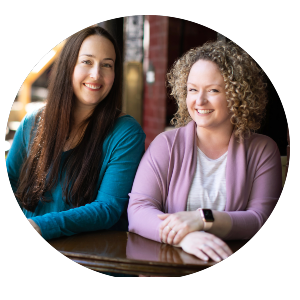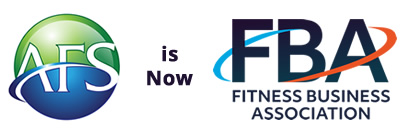 By Noël Nocciolo and Ashley FitzSimmons-Olsen, Special FBA Contributors
By Noël Nocciolo and Ashley FitzSimmons-Olsen, Special FBA Contributors
“Just speak very loudly and quickly, and state your position with utter conviction, as the French do, and you'll have a marvelous time!”― Julia Child, My Life In France
All observations, funny, mean-spirited, or otherwise aside…we believe Ms. Child makes a sound point and one relevant to coaches. (Pun not intended!)
When we as group fitness instructors or personal trainers are leading either a room of members in class or a one-on-one client in a private session, for a positive desired outcome there must be conviction in our voices when stating what to do.
We’ll take it a step further than Julia and add: our class experience becomes an elevated one when there is not only conviction in our voice, but when the energy and intensity of the movement is mirrored in the intensity of our voice.
We coaches are in the business of leading others to do what we have programmed for them in that session. We verbally and physically (hopefully both) adjust form and progress or regress exercises. We program the way we do for a variety of reasons, be it individual goals or to try and gain an emotional release in a group fitness class.
Big and boisterous, fist-pumping songs at the finish line of an indoor cycling class, for example, accompanied by acoustic cool-down music are both an emotional and physical contrast and a choice we make, if stirring the pot of members’ emotional release is what we seek. If music matches the energy in a group fitness experience, shouldn’t it be the same with the voice? Yes! Is this the same as shouting? Absolutely not!
To ensure our class programming and our vocal delivery complement one another to elevate the experience for members, here are a few ideas to consider:
- If we are teaching HIIT intervals and are playing music to support the motivation necessary to rev up the crowd into completing what we’ve programmed, we are probably not going to speak slowly as we coach. What might you notice if you audio-record a particularly boisterous part of your class and listen back to hear the speed of your voice? Can you understand what you are saying? Does your voice match what is happening in that moment in class?
- If we are cueing a cool-down or stretch series, we probably aren’t going to quickly speak through the movements. Try audio-recording a more calm part of your class and see what you notice. Does your voice match the movement?
- When listening back, remember that a microphone only amplifies the voice - it does not make the words clearer. If you are struggling to understand what you’ve said on your recording, it is likely that members also struggled to understand your words. Keep this in mind when listening back! For more microphone use tips, check out our article from last month here (linked).
Vocal variety comes with variation in speech rate, pitch and even the purposeful choice of when to speak and when to be silent. These elements can help us lead members on the carefully planned journey they crave and keep them coming back for more. Even seasoned coaches can benefit from reflection on their use of these elements of vocal variety to breathe new life into their classes; we are always learning.
Whether we are teaching in-person or online, we wish for the members we coach to have a great experience. Our vocal energy and intensity can help us turn an average experience into an exceptional one.
Noël Nocciolo, seasoned instructor and successful industry consultant, travels the world creating boutique indoor cycling programs & advising studio owners. Noël developed a passion for helping instructors focus on vocal performance after hearing voice damage worldwide, as well as after once hearing her own class video and realized she was mimicking another instructor rather than coaching as her own authentic self. Leveraging her performing background, 15 creative years in NYC and extensive resume, she provides simple education and tangible tools that significantly improve an instructor’s class.
Ashley FitzSimmons-Olsen, M.S., CCC-SLP worked professionally as a performer and taught theater and dance, and is now a licensed, certified speech-language pathologist, having worked in a variety of settings as a speech-language pathologist treating communication disorders across the lifespan.


Join the Conversation!